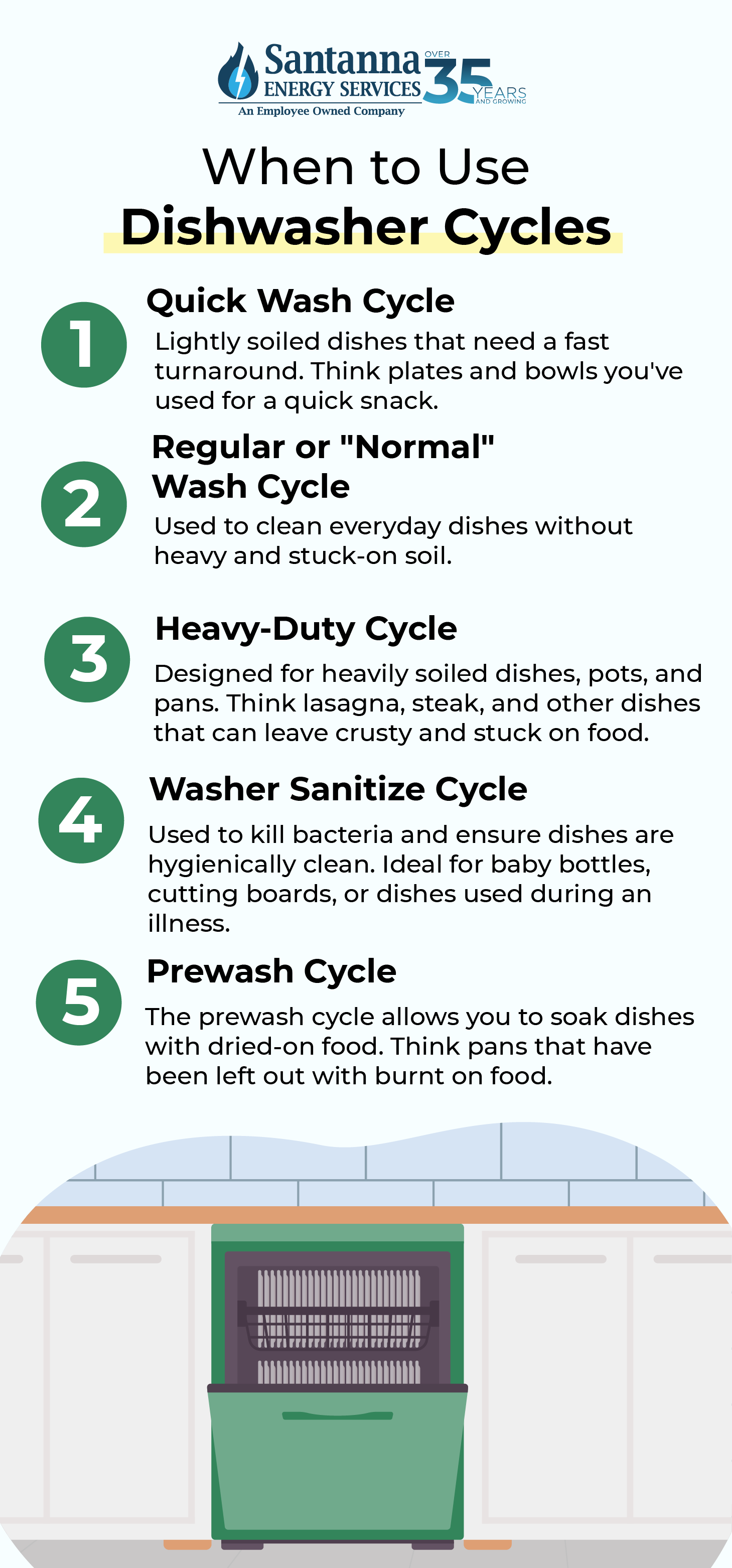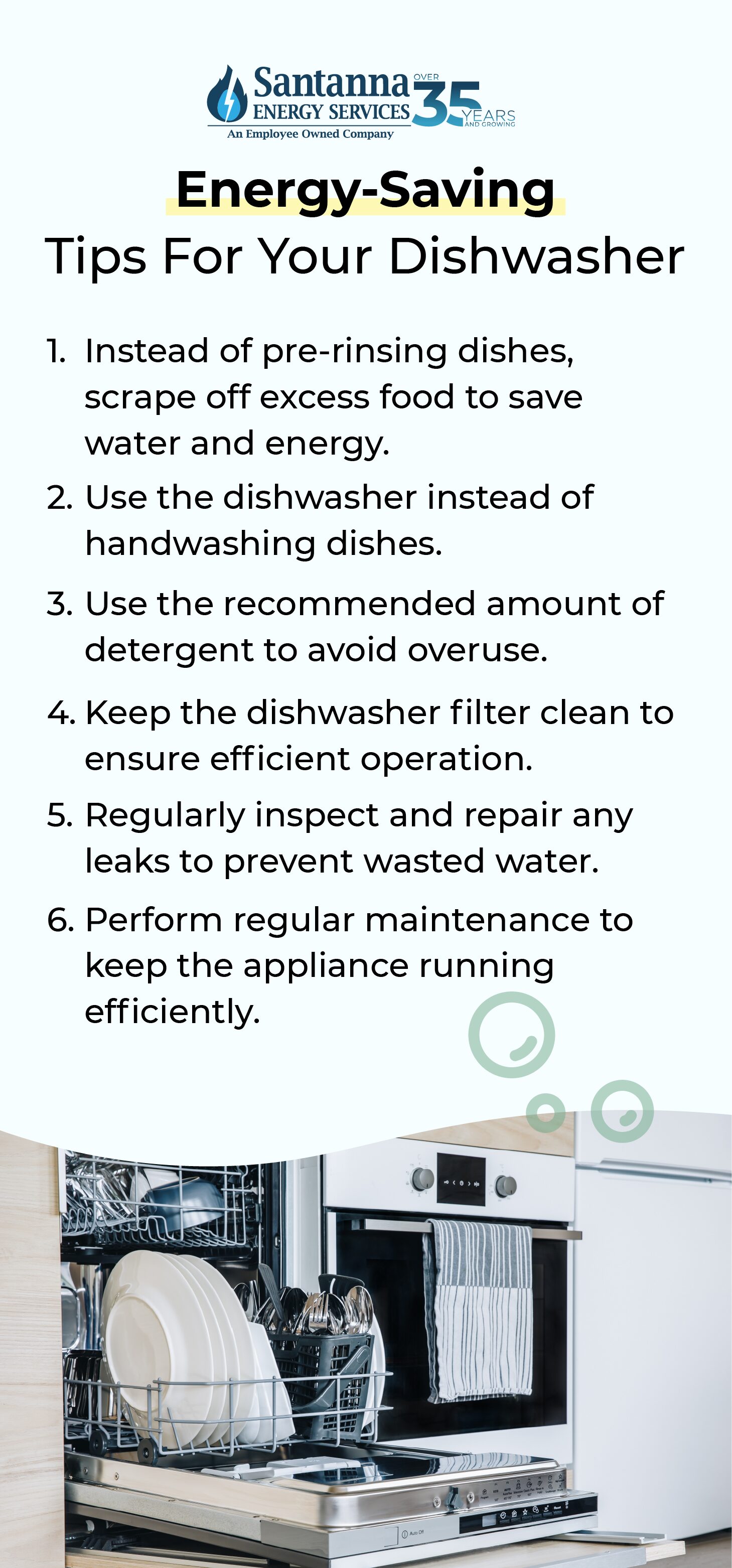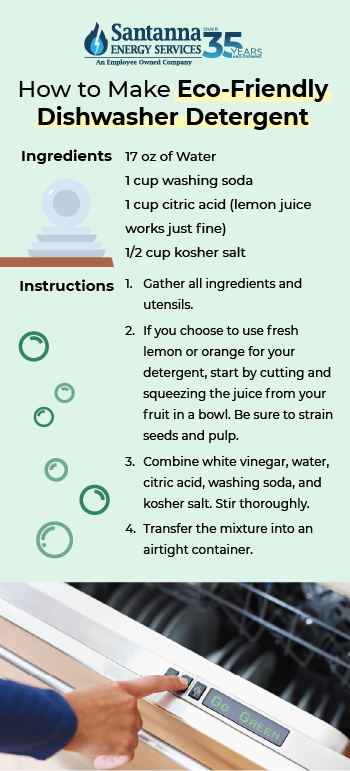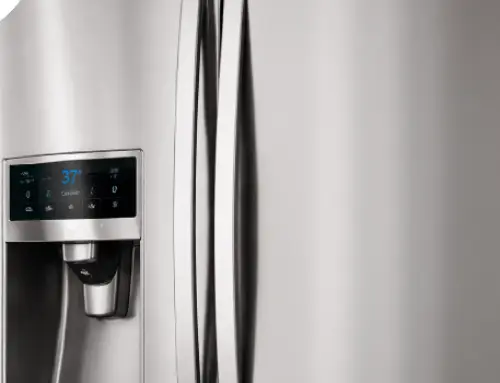How Long Does a Dishwasher Run? Average Times & More
by Tyler Castle
11.3 min read
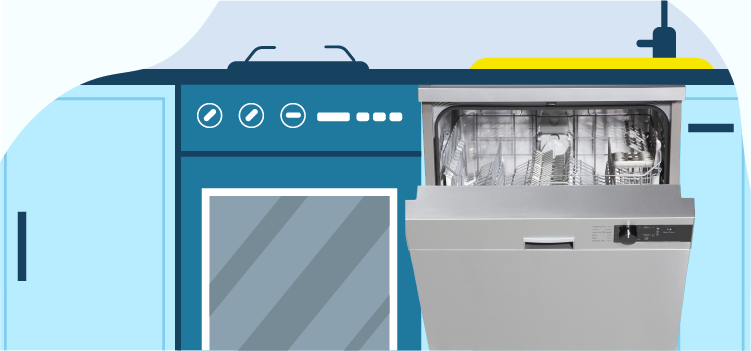
Wondering how long your dishwasher runs on a typical cycle? Whether you’re waiting to unload clean dishes or trying to manage your household energy usage, understanding the average dishwasher run time can help. We’ll break down how long a dishwasher typically runs, what factors influence the cycle length, and how you can optimize its performance for efficiency and convenience.
Key Points of This Article:
- Most dishwasher cycles run between 1.5 and 4 hours, with older models taking longer and newer models operating more efficiently.
- Different cycle types vary in length, with quick washes taking 30 to 60 minutes, normal cycles around 2 hours, and heavy duty or sanitize cycles lasting up to 3.5 hours.
- Understanding cycle times helps improve energy and water efficiency, extend the appliance’s lifespan, and ensure dishes are cleaned effectively.
- Factors such as load size, soil level, water temperature, detergent type, and dishwasher maintenance all influence how long a cycle takes and how well the dishwasher performs.
How long does a dishwasher run?
Most dishwashers can run 1.5-4 hours. The exact length of your dishwashing cycle will depend on your model and what cycle you choose to wash your dishes. One of the biggest considerations that affects how long your dishwasher will run depends on the age of your appliance.
The older the dishwasher you have the less efficient and slower your dishes will take to clean. Older models need to work harder to get the job done, while newer ones are designed to operate more efficiently.
How long should a dishwasher cycle take?
Even at the heaviest cycle, your dishwashing cycle should take no more than 4 hours. If your dishwasher is taking longer than this, it might be time to purchase a new model.
How long is the average dishwasher cycle?
The average dishwasher cycle typically lasts between 1.5 to 2.5 hours. However, this can vary depending on the model and cycle type. Standard cycles generally fall within this range, while quick or express cycles may take as little as 30 to 60 minutes.
How long does a dishwasher run on normal cycle?
On a “normal” cycle, a dishwasher runs for two hours. A normal cycle on a dishwasher is designed for everyday dishwashing needs, cleaning standard loads of moderately soiled dishes. It’s recommended that dishwashers filled at a normal capacity should use the “normal” cycle.
Why it pays to know your dishwasher run time and cycles
Understanding your dishwasher’s run time and cycles can save you both time and money. Knowing the length of each cycle helps you plan your daily routine more efficiently. In the same way, knowing when to use the right cycle can save you both energy and water.
By optimizing the use of your dishwasher’s cycles, you also extend the lifespan of the appliance, reducing wear and tear. Using your appliance only when you need to can increase your machine’s energy efficiency as well.
Types of dishwasher cycles
Modern dishwashers come with a few different cycles that clean for different residues. Knowing which cycle to choose for each type of residue can make a big difference in cleaning efficiency and resource usage. Here’s a breakdown of some of the most common cycles, their lengths, and what conditions they should be used for:
Quick wash cycle
The quick wash cycle is perfect for lightly soiled dishes that need a fast turnaround. This cycle is ideal for everyday use when time is short or dishes that don’t have baked-on food. Think plates and bowls you’ve used for a quick snack.
How long is a quick wash cycle? Quick wash cycles typically take an hour to run but some models can get the job done as fast as a half hour. Quick washes tend to use less water and energy because of their short runtime.
Regular or “normal” wash cycle
Regular cycles can be used to clean everyday dishes without heavy and stuck-on soil. This cycle type provides a balance between energy efficiency and effective cleaning. A typical regular wash cycle lasts between 1.5 to 2.5 hours, offering a thorough clean without excessive resource consumption.
Heavy-duty cycle
A heavy-duty cycle is specifically designed for heavily soiled dishes, pots, and pans that require extra cleaning power. Think lasagna, steak, and other dishes that can leave crusty and stuck on food. The heavy-duty dishwashing cycle uses high water pressure and scalding temperatures to handle baked-on food.
How long is a heavy-duty wash cycle? A heavy-duty wash cycle generally runs between 2 to 3.5 hours, depending on the dishwasher.
Washer sanitize cycle
The washer sanitize cycle is used to kill bacteria and ensure dishes are hygienically clean, making it ideal for items like baby bottles, cutting boards, or dishes used during an illness. This cycle also raises the dishwasher temperature to sanitize dishes and glassware. The washer sanitize cycles can add 1.5 hours to your cycle. Depending on the model, the sanitize cycle can last up to 3 hours because of the extended heating and cleaning process.
Prewash cycle
What is a prewash cycle? The prewash cycle allows you to soak dishes with dried-on food. Think of the pan that you left out for a few days you’ve used to cook chicken; this is the cycle you’ll want to use to clean this pan. The prewash cycle helps loosen debris so that the main cycle can clean more effectively.
The prewash cycle is short, usually around 10 to 15 minutes. Using the prewash first can improve the performance of the main wash by reducing the strain on it, leading to potentially cleaner dishes and shorter cycles.
Can I open my dishwasher mid-cycle?
You can open your dishwasher mid-cycle. Please note that this could interrupt your current cycle, and you may need to manually restart the machine. Depending on when you interrupt the cycle, look out for safety concerns like hot water leakage, hot steam, and hot dishes.
How often should you run your dishwasher?
How often you should run your dishwasher depends on your household’s size and dishwashing needs. For a typical family, running your dishwasher every day is pretty common. If you live alone or in a smaller household, you may only need to run it every two to three days. To keep your dishwasher running efficiently, Cascade recommends running your dishwasher once a week to keep things moving.
Should I run my dishwasher every night?
Running your dishwasher every night can be a good habit if you generate enough dirty dishes throughout the day to fill it. This routine ensures that you start each day with clean dishes and avoid letting dirty dishes pile up.
According to Cascade, running your dishwasher with as few as eight dishes is all it takes to save water. While running your dishwasher every night might not be necessary, consistently running your dishwasher can contribute to water conservation.
The best time to run the dishwasher
The best time to run your dishwasher is during off-peak energy hours. Off-peak energy hours are typically late at night or early in the morning. Additionally, operating your dishwasher during times of lower energy demand can significantly contribute to reducing the overall strain on the power grid.
How does cycle time affect energy efficiency?
Longer cycles generally use more energy because of their extended heating and drying times, as well as additional water usage. Heavy-duty cycles, which tackle tough stains, often require more time and energy compared to quick wash cycles.
Modern dishwashers often feature energy-efficient cycles designed to balance cleaning performance with reduced energy consumption. By selecting the appropriate cycle based on the load’s soil level, you can optimize both cleaning effectiveness and energy use.
Average energy consumption of a dishwasher
The average energy consumption of a dishwasher varies depending on the cycle used, and your unit’s efficiency. To determine how much energy a dishwasher uses, let’s discuss kilowatt hours. A kilowatt hour (kWh) is the metric utility companies use to gauge how much electricity you use over time. For every 1000 watts you use, this equals one-kilowatt hour of energy used.
Next, you’ll need to determine the amount of watts your dishwasher uses. According to Finish, the average dishwasher uses only about 1800 watts per cycle. Using this average, here is the approximate energy consumption based on different wash cycles and their average run times:
Average Dishwasher Energy Consumption by Cycle Type
| Dishwasher Cycle | Average Time | Average Wattage (Watts) | Energy Consumption (kWh) |
|---|---|---|---|
| Quick Wash | 30 minutes | 1800 | 0.9 kWh |
| Regular Wash | 2 hours | 1800 | 1.8 kWh |
| Heavy/Heavy-Duty | 3 hours | 1800 | 2.7 kWh |
| Sanitize | 2.5 hours | 1800 | 2.3 kWh |
| Prewash | 15 minutes | 1800 | 0.5 kWh |
Compared to other appliances in your home, dishwashers use a relatively small amount of energy. Based on the average amount of watts provided by Forbes, here’s an estimate of how a dishwasher stacks up against other appliances in your home:
Average Energy Consumption of Common Appliances in Your Home
| Appliance | Average Wattage | Average Time Appliance is Used Per Day | Energy Consumption in kWh |
|---|---|---|---|
| Dishwasher (Regular Wash) | 1800 | 2 hours | 1.8 kWh |
| Refrigerator | 1800 | 24 hours | 43.2 kWh |
| Air Conditioner | 1300 | 8 hours | 10.4 kWh |
| Space Heater | 1500 | 5 hours | 7.5 kWh |
| Hair Dryer | 1000 | 15 minutes | 0.15 kWh |
Note that your exact energy consumption for each appliance will vary based on how long you use that appliance.
Why is it important to choose an energy-efficient dishwasher?
Choosing an energy-efficient dishwasher is important for several reasons if you value your energy consumption:
- Energy-efficient dishwashers consume less electricity and water, which translates to lower utility bills.
- Using less energy and water helps reduce your household’s overall environmental footprint.
- Modern energy-efficient dishwashers are designed to deliver superior cleaning performance.
- Energy-efficient models tend to be more robust and well-designed, potentially leading to fewer repairs and a longer lifespan.
Types of dishwasher detergents
To ensure the proper functioning of your dishwasher, it is crucial to use the appropriate detergent. Using the right quantity of dishwasher detergent can make all the difference in the quality of your dishwashing cycle. Here are some of the most common dishwasher detergent types and how much you should use:
Dishwasher detergent pods
Dishwasher detergent pods offer a convenient and mess-free solution for cleaning dishes. Pre-measured and compact, they eliminate the need for measuring and reduce the risk of overuse or spills. However, they can be more expensive per load compared to other forms of detergent, and their effectiveness may vary with different dishwasher models. Dishwasher detergent pods are ideal for larger loads.
Dishwasher detergent powder
Dishwasher detergent powder is a versatile and cost-effective option for many households. It allows for precise dosage adjustments, which can be beneficial for customizing the amount based on load size and soil level. Typically, a standard recommendation is to use about 1-2 tablespoons of powder per load.
Making your own detergent
Making your own dishwasher detergent can be a cost-effective and eco-friendly choice. Homemade detergents often use common household ingredients like baking soda, washing soda, and citric acid. For each load, use approximately 1-2 tablespoons of the mixture.
Factors affecting cycle time
No one’s energy consumption or cycle time will be exactly the same. Some of the most common factors that affect cycle time include:
- Larger loads generally require more time to clean thoroughly.
- Heavily soiled or greasy dishes may necessitate longer cycles or additional pre-wash steps.
- Higher water temperatures can improve cleaning efficiency but may also lengthen the cycle time.
- The type and amount of detergent used can influence cycle time.
- A clogged or dirty filter can reduce the effectiveness of the wash and may lead to longer cycles.
- If spray arms are obstructed or not functioning properly, it can impact the cleaning process.
Dishwasher maintenance tips
- Regularly remove and clean the dishwasher filter to prevent clogs.
- Inspect the spray arms for clogs and debris.
- Clean the door seals and gaskets with a damp cloth to remove food particles and prevent mold and mildew buildup.
- Use a dishwasher cleaner or a mixture of white vinegar and baking soda to run a cleaning cycle monthly.
- Check the drain area for food particles or debris that might cause blockage.
- Ensure your dishwasher is connected to hot water.
Common dishwasher issues
Why is my Dishwasher Leaking? – Examine the door seals and gaskets for any signs of wear or damage. Check the hose connections and if the leaking continues, call a professional.
Why are my dishes coming out dirty? – Ensure that you’re loading the dishes properly, avoid overcrowding, and check if the spray arms are obstructed or clogged.
Why is my dishwasher making loud noises? – Inspect the spray arms for any obstructions or damage. Check for loose or damaged parts and if you find any, call a professional to replace them.
Why does my dishwasher leave water spots on my dishes? – Ensure you’re using the correct amount of rinse aid and that it’s being dispensed properly.
Understanding the factors that affect your dishwasher’s cycle time and maintaining it properly not only ensures clean dishes but also contributes to overall energy efficiency. At Santanna Energy Services, we are committed to helping you find the right energy plan for your lifestyle and provide resources that help support your goals toward achieving energy efficiency.
There’s peace of mind in knowing you’ll pay the same monthly supply cost amount for your electricity or natural gas supply without any uncertainty — no matter what. Santanna’s Unlimited Energy option protects your bills from fluctuating supply charges no matter the changes in seasons. For over 35 years, Santanna has served customers in Illinois, Indiana, Pennsylvania, Michigan, and Ohio. Our mission is to provide innovative and cost-effective energy solutions that will help our customers achieve their energy goals.
Tyler is an experienced energy professional, having worked for Santanna Energy Services, for the past four years. He is passionate about renewable energy and believes that diversifying the energy grid is the key to a sustainable future. Tyler is dedicated to supplying consumers with the best possible energy solutions and works diligently to make sure that Santanna can deliver the highest quality service.


